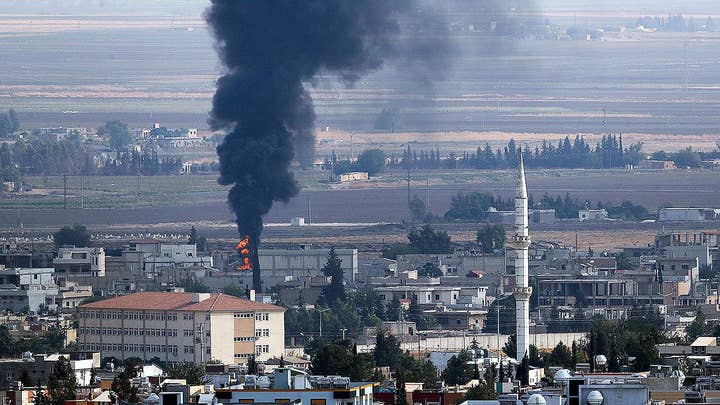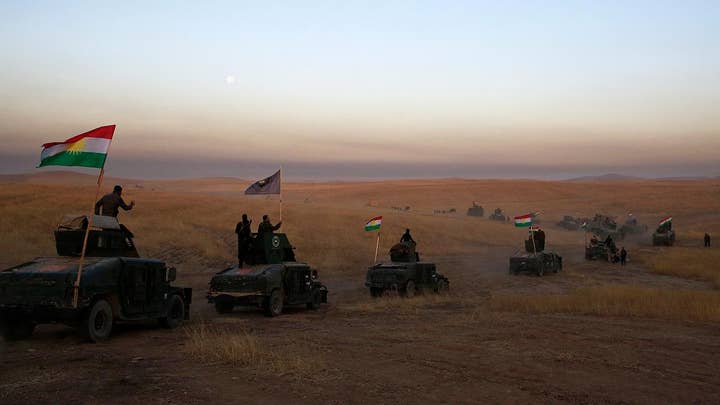Fox News Flash top headlines for Oct. 20
Fox News Flash top headlines for Oct. 20 are here. Check out what's clicking on FoxNews.com
Rep. Justin Amash, I-Mich., continued on Sunday his criticism of President Trump’s decision to withdraw U.S. military forces from northern Syria, saying the president is using troops as “paid mercenaries” and questioning the role Congress should play in the decision-making process.
In an interview on NBC’s “Meet The Press,” Amash said it was “pretty clear” from the outset that Trump had no plans of bringing the U.S. troops deployed in northern Syria back to American soil.
"He’s moving troops back into Iraq. He’s moving other troops into Saudi Arabia," said Amash, who earlier this year left the Republican Party over his disagreements with Trump. "He’s using our forces as paid mercenaries. What happened to the American people having their voices heard through their representatives in Congress."
U.S. Defense Secretary Mark Esper said over the weekend that under current plans all U.S. troops leaving Syria will go to western Iraq and the American military will continue to conduct operations against the Islamic State group to prevent its resurgence.
Esper, who arrived in the Afghan capital on Sunday, did not rule out the idea that U.S. forces would conduct counterterrorism missions from Iraq into Syria. But he told reporters traveling with him that those details will be worked out over time.
His comments were the first to specifically lay out where American troops will go as they shift from Syria and what the counter-ISIS fight could look like. Esper, who flew overnight to Afghanistan, said he has spoken to his Iraqi counterpart about the plan to shift about 1,000 troops leaving Syria into western Iraq.
The developments made clear that one of President Trump's rationales for withdrawing troops from Syria was not going to come to pass any time soon. "It's time to bring our soldiers back home," Trump said Wednesday. They are not coming home, although Trump tweeted Sunday: "USA soldiers are not in combat or ceasefire zones" and "Bringing soldiers home!"
Answering Trump’s tweet, Amash also took to social media on Sunday to mock the president’s moves.
"Trump’s words: Bring them home. Trump’s action: Send them to Iraq," he tweeted.
Trump ordered the bulk of the approximately 1,000 U.S. troops in Syria to withdraw after Turkish President Recep Tayyip Erdogan made it clear in a phone call that his forces were about to invade Syria to push back Kurdish forces that Turkey considers terrorists.
The pullout largely abandons America's Kurdish allies, who have fought ISIS alongside U.S. troops for several years. Between 200 and 300 U.S. troops will remain at the southern Syrian outpost of Al-Tanf.
CLICK HERE TO GET THE FOX NEWS APP
Esper said the troops going into Iraq will have two missions.
"One is to help defend Iraq and two is to perform a counter-ISIS mission as we sort through the next steps," he said. "Things could change between now and whenever we complete the withdrawal, but that's the game plan right now."
The U.S. currently has more than 5,000 American forces in Iraq, under an agreement between the two countries. The U.S. pulled its troops out of Iraq in 2011 when combat operations there ended, but they went back in after ISIS began to take over large swaths of the country in 2014. The number of American forces in Iraq has remained small due to political sensitivities in the country, after years of what some Iraqis consider U.S. occupation during the war that began in 2003.
The Associated Press contributed to this report.
























